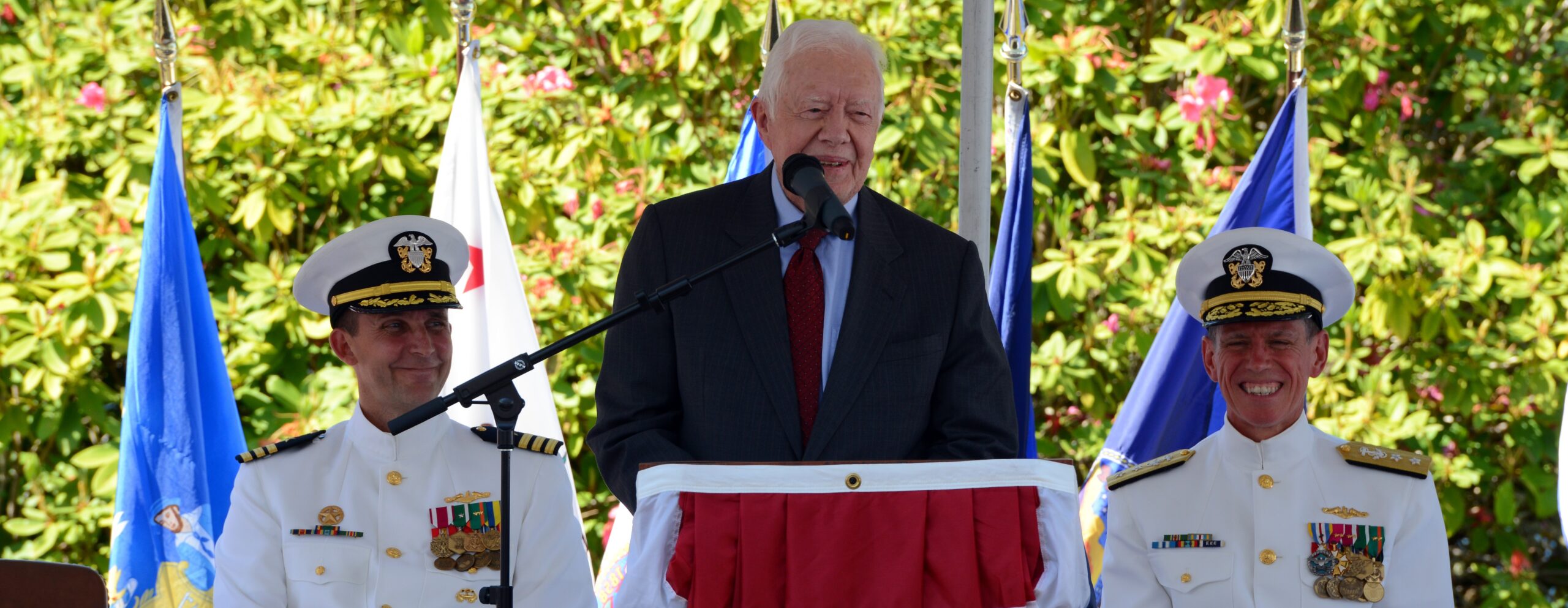Carter died on December 29 (local time) at his home in Plains, Georgia, aged 100.
US President Joe Biden and first lady Jill Biden said in a statement that the US, and the world, lost an extraordinary leader, statesman and humanitarian.
A national day of mourning will be held on January 9 (local time) for the 39th US president and an official funeral to be held in Washington DC
“Over six decades, we had the honour of calling Jimmy Carter a dear friend but what’s extraordinary about Jimmy Carter, though, is that millions of people throughout America and the world who never met him thought of him as a dear friend as well,” Biden said in a statement.
“With his compassion and moral clarity, he worked to eradicate disease, forge peace, advance civil rights and human rights, promote free and fair elections, house the homeless and always advocate for the least among us.
“He saved, lifted and changed the lives of people all across the globe. He was a man of great character and courage, hope and optimism,” Biden said.
US Vice-President Kamala Harris said it had been “a privilege” to know Carter for years.
“I will always remember his kindness, wisdom, and profound grace. His life and legacy continue to inspire me — and will inspire generations to come.
“Our world is a better place because of President Carter,” she said.
Carter is also a former Governor of Georgia and Navy Lieutenant.
US Secretary of Defence Lloyd J. Austin III called Carter a “principled leader” and “a steadfast champion of human rights and democratic ideals”.
Carter served as governor of Georgia from 1971 to 1975 and president from 1977 to 1981 but before that, he served in the Navy from 1946 to 1953 and in the reserves from 1953 to 1961.
In 2005, a nuclear submarine was commissioned in his honour.
Carter also contributed to global security, Austin said, noting his role in working to strengthen NATO and other alliances.
He also issued the Carter Doctrine, which specified that the US would use military force, if necessary, to ensure stability and security in the Persian Gulf.
The president also established diplomatic relations with China and brokered peace between Israel and Egypt, the secretary said.
After his father died, Carter returned home to Plains, to help manage his family’s peanut farm. He worked hard stewarding the land while leading his community as a church deacon, Sunday school teacher and board member of a hospital and library.
After his presidency, Carter and wife Rosalynn founded the Carter Centre and worked to build homes for the poor, fight disease and expand economic opportunities, Austin noted.






